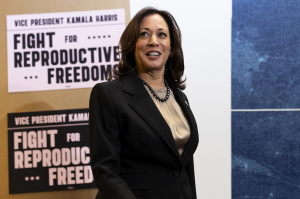The true nature of freedom and the means for sustaining it

Some people today see freedom as that state or condition in which the individual is released from all restraints, free from any suggestions of moral guilt or an absolute moral standard. There should be no obligations mandated, no discipline — just freedom to do one’s own thing — regardless of the fact that we are all interrelated, interconnected, and what we choose to do almost always affects someone else, either positively or negatively.
I suggest the fundamental error of this approach or this point of view to freedom — is that it confuses liberty with licentiousness, and it is not consistent with our nation’s religious heritage, Christianity. Moreover, it does not sustain liberty, and although it may be well-intended and zealous in its cause, it is misguided and actually undermines freedom.
The apostle Paul said in his second epistle to the church in Corinth, a place that was synonymous with lustful living, immoral exhibitions, and idolatry, “where the Spirit of the Lord is, there is liberty.”
He said to the churches of Galatia, “For you have been called to live in freedom, my brothers and sisters. But don’t use your freedom to satisfy your sinful nature. Instead, use your freedom to serve one another in love” (Galatians 5:13).
There are actually two types of freedom, external and internal.
External freedom is an outer state of the individual; an external condition that represents “the absence of force, the absence of coercion, the absence of restraint and constraint.”
Internal freedom, however, is essentially that personal inner state of being that comes through one’s relationship to his Creator. This internal freedom is indispensable for breaking the bonds inside of each of us that enslave us to our carnal and destructive passions and appetites, and our lack of consideration for others.
Internal freedom is what God does in our hearts through Christ, through the regeneration of his Spirit, to fix inside us a love for Him and his ways, which causes us to willingly constrain ourselves, to live by right thoughts, right ideas, right motives, right convictions, and right desires.
This is what Christ was talking about when he said, “Therefore, if the Son makes you free, you shall be free indeed.”
Stephen McDowell and Mark Beliles explain this quite eloquently. In their book, Liberating the Nations, they argue:
“How a man governs himself internally affects his external actions, speech, conduct, use of property, etc. Each external sphere of government is a reflection of the internal sphere.
“Effective government begins by an individual learning to govern himself. The more internal self-government a person possesses, the less external government is needed. Consequently, the more rules and laws required to keep people acting rightly is a revelation of a diminishing amount of self-government. History teaches that man can control himself, but only to a limited degree. Since self-government cannot be imposed externally, and man is limited in [his abilities] to exercise personal self-discipline, there needs to be another source for internal control … man can only be truly self-governed if his reason, will, and appetites are ruled of God. The basis of self-control is obedience to the Creator and His standards of conduct found in the Bible.”
In their book, the authors correctly contend and document that our founders were quite convinced of this truth — that’s why they believed our nation’s laws should reflect the laws of God.
“The fourth President of the United States and chief architect of the U.S. Constitution, James Madison stated:
“We have staked the whole future of American civilization, not upon the power of government, far from it. We have staked the future of all our political institutions upon the capacity of mankind for self-government; upon the capacity of each and all of us to govern ourselves, to control ourselves, to sustain ourselves according to the Ten Commandments of God.”
McDowell and Beliles further argue, “As a people in a nation become less self-governed, and [they inadvertently] give up power, the civil government (especially the national government) will grow and grow, making more and more laws (many outside its jurisdiction) and spending more and more money. Lack of self-government leads to greater centralized external government, which ultimately results in the loss of liberty.”
Let me share with you this simple illustration that I’ve drawn from theologian John Stott:
Consider a fish. It’s limited to water, but in that limitation there is liberty.
Suppose you had a little tropical fish in one of those old-fashioned, spherical goldfish bowls. Suppose the little fish swam round and round that bowl until its frustration became unbearable. The fish decided to make a bid for freedom and leap out of the bowl. If it landed in a pond in your backyard, it would increase its freedom because there would be more water to swim in. But if it landed on the ground or on the concrete, then its bid for freedom would spell its death.
If fish were made for water, what are human beings made for? What is the element in which human beings find themselves, as water is the element in which a fish finds itself?
Human beings are made for a personal relationship with God. God created us in his own image. In other words, human beings find their destiny, their purpose, their meaning, and true liberty in love for God and their neighbor.
Only those who comprehend the source and nature of freedom can understand its necessary parameters and requirements. Freedom comes from knowing what God made us for and abiding within the limitations he benevolently sets for us in the Holy Scriptures.
The true nature of freedom is not that we can do anything we want to do, but that we are liberated within to do what we ought to do. Liberty mustn’t be confused with licentiousness.
This is a bedrock truth for understanding the genuine nature of freedom and the necessary means for sustaining it. A certainty of which our nation is not only largely ignorant but also one in which the country is now generally opposed. Therefore, we have never been in greater jeopardy of losing our liberty.
Adapted from Rev. Creech’s speech, Back Onto the Course of True Liberty.
Rev. Mark H. Creech is Executive Director of the Christian Action League of North Carolina, Inc. He was a pastor for twenty years before taking this position, having served five different Southern Baptist churches in North Carolina and one Independent Baptist in upstate New York.




























